It is clear that the impacts of COVID-19 have presented challenges to regional fisheries management organizations (RFMOs) in conducting meetings and addressing important conservation and management issues in 2020. We do not believe current circumstances should prevent the IOTC from taking action to ensure the uninterrupted sustainable management of the tuna stocks and marine ecosystems under its purview. We do recognize that the Commission may need to hone the focus of its work in 2020 for practical reasons due to present circumstances. In particular, there are several critical measures and issues that require immediate attention by IOTC this year.
Yellowfin Tuna
We strongly urge members to agree an adoption of an effective rebuilding plan for yellowfin tuna.
Based on data provided in the IOTC Scientific Committee, and subsequently substantiated in an independently produced report commissioned by the GTA, a catch reduction of 25 percent relative to the catch in the year 2017 is necessary for recovering the stock in two generations.
We see this issue as critical to address this year for two reasons:
- The current measure is interim and therefore must be renewed or revised this year.
- Although a rebuilding plan was adopted by the Commission in 2016 and revised and extended in 2019, the negotiated outcomes resulted in reductions in catch that are not significant enough to rebuild the stock to a sustainable level in the agreed timeframe.
However, the agenda item Report on current IOTC Conservation and Management Measures that include a reference to the year 2020 has the following recommended action:
“no immediate actions are required on the existing CMMs that make reference to the year 2020”.
This, of course, will not result in the building of the overfished yellowfin stock and may result in further decreases. Appreciating that the impacts of COVID-19 have presented challenges in allowing full discussions, we do not believe current circumstances should prevent the IOTC from taking action. A 25% cut in catch is needed to rebuild the stock in two generations but at a minimum we call on delegates to request a special session of the IOTC to allow time to comprehensively discuss rebuilding the overfished yellowfin stock.
The IOTC Rules of Procedure state that, during intervals between regular Sessions, the IOTC may convene special sessions of the Commission, if requested by at least one-third of its members. This would require the support of at least 11 IOTC countries.
In addition, work on the draft resolution for a yellowfin tuna management procedure has been progressing since 2019 there is optimism that a yellowfin tuna management procedure can potentially be adopted in 2021.
To achieve this, delegates should request the Management Strategy Evaluation group to meets in the first quarter of 2021 to progress the work on all five species and the Technical Committee on Management Procedures meets adjacent to the 2021 IOTC Commission meeting to further progress the development of the yellowfin tuna management procedure for possible adoption in 2021.
Skipjack Harvest Control Rules
Members should ensure that the IOTC monitors & control catches of skipjack to ensure catches do not exceed the limit set by Resolution 16/02.
Reforming the Regulations of at-sea Transshipment
At-sea transshipment of catch between vessels plays a large and important role in the global commercial fishing industry.
There is not enough independent data, appropriately and timely shared, nor are other regulations up to date, to allow for effective monitoring and compliance. These gaps create risks for labour and human rights abuses, can reduce observer safety, and create opportunities for IUU fishing activities, fraud, and catch laundering. Insufficient monitoring can also undermine traceability, the provision of required data collection, and effective implementation of bycatch mitigation measures.
As well as adopting 100% observer coverage requirement (human and/or electronic) on all vessels engaged in at sea transshipment, by 2024, IOTC should adopt amendments to existing transhipment regulations to bring in line with best practices.
Observer Coverage
In addition, we urge all members to ensure that short-term measures to suspend some observer coverage requirements are reinstituted as soon as practical. Further, we believe current circumstances reinforce the need for accelerating the development and implementation of electronic monitoring tools and strategies to strengthen critical oversight in tuna fisheries. Specifically, the IOTC should update Resolution 16/04 to ensure that the Scientific Committee develops electronic monitoring standards and presents them to the Commission in 2021.
